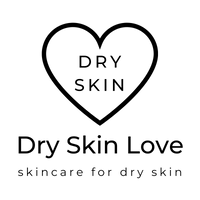Dry Skin Love Apple Elixir 5% Vitamin E Face Oil is a luxurious face oil that infuses your dry skin with essential nutrients and protects your skin against stress and daily environmental damage.
Our Apple Elixir 5% Vitamin E Face Oil is packed with active ingredients, with nutrient-rich plant oils, esters, herbs, flowers and 8 types of vitamin E - including tocopherols and tocotrienols.
We source our vitamin E from a blend of 7 natural plants and extracts.
Learn more: Full Ingredients of Apple Elixir 5% Vitamin E Face Oil
This article will discuss:
- What is vitamin E?
- 8 types of vitamin E - 4 tocopherols and 4 tocotrienols
- Benefits of vitamin E
- Our 7 natural sources of vitamin E
- Summary
- References

What is vitamin E?
Vitamin E is a group of fat-soluble compounds that are important for skin health.
As an essential vitamin, vitamin E cannot be made by the human body and must be obtained from your diet, supplements and/or skincare.
Vitamin E is a family of compounds with different vitamin E activities and antioxidant properties that includes tocopherols and tocotrienols (Trela et al, 2019).
Learn more: What is Topical Vitamin E for Skin?

8 types of vitamin E
There are 8 types of natural vitamin E.
There are four tocopherols (alpha, beta, gamma and delta) and four tocotrienols (alpha, beta, gamma and delta).
In general, tocopherols are abundant in popular vegetable oils such as sunflower and soy, whereas tocotrienols are rarer and found in rice bran oil, oat oil, annatto seeds and palm oil.
Tocopherols
Each form of vitamin E has unique properties, but alpha-tocopherol is the most widely recognized and extensively researched form.
When discussing the benefits or effects of vitamin E, it is typically referring to alpha-tocopherol, unless otherwise specified.
1. Alpha-tocopherol
Alpha-tocopherol is the most biologically active and commonly studied form of vitamin E. It is the form of vitamin E most often found in the human body and has the highest antioxidant activity (Yoshida et al, 2007).
Alpha-tocopherol has also been shown to have anti-inflammatory activity (Reiter et al, 2007).
Dry Skin Love Apple Elixir 5% Vitamin E Face Oil contains alpha-tocopherol from 6 natural sources, including apple seed oil, soybean oil, sunflower seed extract, jojoba oil, oat oil and rice bran oil.
2. Beta-tocopherol
Beta-tocopherol is another form of vitamin E with antioxidant activity, but it is less common and has a lower antioxidant activity compared to alpha-tocopherol (Yoshida et al, 2007).
Interestingly, beta-tocopherol has been shown to inhibit tyrosinase activity and melanin synthesis in preliminary experiments (Kamei et al, 2009).
Dry Skin Love Apple Elixir 5% Vitamin E Face Oil contains beta-tocopherol from 6 natural sources, including apple seed oil, soybean oil, sunflower seed extract, jojoba oil, oat oil and rice bran oil.
3. Gamma-tocopherol
Gamma-tocopherol is a form of vitamin E that has unique antioxidant properties and may have different physiological effects compared to alpha-tocopherol (Yoshida et al, 2007).
Gamma-tocopherol has been found to have anti-inflammatory properties (Jiang et al, 2014; Jiang et al, 2022).
Gamma-tocopherol also has been shown to inhibit tyrosinase activity and melanin synthesis in preliminary experiments (Kamei et al, 2009).
Dry Skin Love Apple Elixir 5% Vitamin E Face Oil contains gamma-tocopherol from 6 natural sources, including apple seed oil, soybean oil, sunflower seed extract, oat oil, jojoba oil, rice bran oil.
4. Delta-tocopherol
Delta-tocopherol is another form of vitamin E, though it is found in smaller quantities compared to other tocopherols.
Delta-tocopherol is also an antioxidant, and has been shown to have anti-inflammatory activity (Jiang et al, 2014).
Dry Skin Love Apple Elixir 5% Vitamin E Face Oil contains delta-tocopherol from 4 natural sources, including apple seed oil, soybean oil, sunflower extract and rice bran oil.

Tocotrienols
Emerging research is shedding light on the potential health benefits of other forms of vitamin E, particularly tocotrienols, which have distinct biological activities and therapeutic potential.
5. Alpha-tocotrienol
Alpha-tocotrienol is the most studied and biologically active form of tocotrienols. It exhibits potent antioxidant properties and may have additional health benefits beyond traditional vitamin E functions (Yoshida et al, 2007).
The alpha-isomers of both tocopherol and tocotrienol are the strongest antioxidants.
Dry Skin Love Apple Elixir 5% Vitamin E Face Oil contains alpha-tocotrienol from 3 natural sources, including apple seed oil, oat oil and rice bran oil.
6. Beta-tocotrienol
Beta-tocotrienol is a rare form of tocotrienol with antioxidant activity (Mukai et al, 2014).
Dry Skin Love Apple Elixir 5% Vitamin E Face Oil contains beta-tocotrienol from 2 natural sources including rice bran oil and oat oil.
7. Gamma-tocotrienol
Gamma-tocotrienol is another form of tocotrienol.
Gamma-tocotrienol has unique antioxidant and anti-inflammatory properties (Jiang et al, 2014).
Dry Skin Love Apple Elixir 5% Vitamin E Face Oil contains gamma-tocotrienol from 4 natural sources, including annatto seed extract, rice bran oil, apple seed oil and oat oil.
8. Delta-tocotrienol
Delta-tocotrienol is another form of tocotrienol with antioxidant activity (Mukai et al, 2014).
Dry Skin Love Apple Elixir 5% Vitamin E Face Oil contains delta-tocotrienol from 2 natural sources, including annatto seed extract and rice bran oil.

Our 7 sources of vitamin E
Dry Skin Love Apple Elixir 5% Vitamin E Face Oil contains vitamin E from various natural sources:
- Vitamin E from Apple seed oil
- Vitamin E from Oat kernel oil
- Vitamin E from Rice bran oil
- Vitamin E Tocopherols from Soybean oil
- Vitamin E Tocopherols from Sunflower seed extract
- Vitamin E Tocopherols from Golden Jojoba oil
- Vitamin E Tocotrienols from Annatto seed extract

Vitamin E from Apple Seed Oil
Dry Skin Love Apple Elixir 5% Vitamin E Face Oil contains cold-pressed apple (Pyrus malus) seed oil.
Cold-pressed apple seed oil has high amounts of total vitamin E at 1.43 mg/g (Pieszka et al 2015).
Apple seed oil is a rich source of tocopherols, with:
- 0.62 mg/g beta-tocopherol
- 0.41 mg/g alpha-tocopherol
- 0.21 mg/g delta-tocopherol
- 0.13 mg/g gamma-tocopherol
Apple seed oil also contains tocotrienols, with:
- 0.03 mg/g gamma-tocotrienol
- 0.01 mg/g alpha-tocotrienol
Learn more: Benefits of Apple Seed Oil for Dry Skin

Vitamin E from Oat Oil
Dry Skin Love Apple Elixir 5% Vitamin E Face Oil contains cold-pressed oat (Avena sativa) kernel oil.
Oat oil has been shown to contain vitamin E tocopherols and tocotrienols (Panfili et al, 2003; Musa et al, 2006; Tong et al, 2013; Górnaś et al, 2016).
Oat oil is a source of tocopherols and has been shown to contain:
- 0.015 - 0.157 mg/g alpha-tocopherol
- 0.003 - 0.119 mg/g beta-tocopherol
- 0.004 - 0.107 mg/g gamma-tocopherol
Oat oil is a good source of tocotrienols and has been shown to contain:
- 0.056 - 0.346 mg/g alpha-tocotrienol
- 0.005 - 0.041 mg/g beta-tocotrienol
- 0.006 mg/g gamma-tocotrienol

Vitamin E from Rice Bran Oil
Dry Skin Love Apple Elixir 5% Vitamin E Face Oil contains refined rice (Oryza sativa) bran oil.
Rice bran oil is a unique oil due to its rich source of important nutrients such as gamma-oryzanol, lecithin, and vitamin E.
Rice bran oil is a great natural source of vitamin E tocopherols and tocotrienols (Yong et al, 2014; Górnaś et al, 2016; Shahidi et al, 2016).
Rice bran is a source of tocopherols and has been shown to contain:
- 0.007 - 0.15 mg/g alpha-tocopherol
- 0.003 - 0.08 mg/g gamma-tocopherol
- 0.002 - 0.03 mg/g beta-tocopherol
- 0.0003 - 0.03 mg/g delta-tocopherol
Rice bran is a great source of tocotrienols, with:
- 0.01 - 0.23 mg/g gamma-tocopherol
- 0.008 - 0.13 mg/g alpha-tocotrienol
- trace - 0.026 mg/g beta-tocotrienol
- 0.001 - 0.025 mg/g delta-tocopherol

Vitamin E Tocopherols from Soybean oil
Soybean (Glycine max) oil is naturally a rich source of vitamin E tocopherols.
Soybean oil has been shown to contain:
- 0.60 - 0.70 mg/g gamma-tocopherol
- 0.24 - 0.26 mg/g delta-tocopherol
- 0.09 - 0.12 mg/g alpha-tocopherol
- 0.01 mg/g beta-tocopherol
(Shahidi et al, 2016)
Dry Skin Love Apple Elixir 5% Vitamin E Face Oil contains a full spectrum vitamin E blend that is composed of 50% vitamin E (alpha-tocopherol, beta-tocopherol, gamma-tocopherol, delta-tocopherol) and 50% (GMO-free) refined soybean oil.
This Vitamin E blend is approved by ECOCERT Greenlife and conforms to the COSMOS standard.

Vitamin E Tocopherols from Sunflower seed extract
Sunflower (Helianthus annuus) seed is naturally high in vitamin E tocopherols.
Dry Skin Love Apple Elixir 5% Vitamin E Face Oil contains a premium vitamin E blend called TocobiolⓇ. It is naturally derived from 100% GMO-free sunflower seeds.
It is naturally rich in mixed tocopherols, including 70% alpha-tocopherol, 10% beta and gamma-tocopherol, and 18% delta-tocopherol. It also contains moisturizing phytosterols and squalene.

Vitamin E Tocopherols from Jojoba Seed Oil
Dry Skin Love Apple Elixir 5% Vitamin E Face Oil contains cold-pressed organic golden jojoba (Simmondsia chinensis) seed oil.
Jojoba oil is a unique oil that is made of liquid wax esters that are similar to the natural esters produced by the sebaceous glands in your skin (Wertz, 2009).
Jojoba oil is a natural source of vitamin E tocopherols (El-Mallah et al, 2009).
Jojoba oil has been shown to contain:
- 0.079 mg/g gamma-tocopherol
- 0.020 mg/g alpha-tocopherol
- 0.00045 mg/g beta-tocopherol

Vitamin E Tocotrienols from Annatto seed
The highest natural source of tocotrienols is annatto (Bixa orellana) seed.
Annatto seeds are from the achiote tree, which is found in tropical regions in South and Central America.
Dry Skin Love Apple Elixir 5% Vitamin E Face Oil contains a premium blend of vitamin E tocotrienols from annatto seed extract with contains 90% delta-tocotrienols and 10% gamma-tocotrienols.

Skin benefits of topical vitamin E
Topical vitamin E has benefits for your skin.
When applied topically, vitamin E is a skin conditioning agent, a powerful antioxidant and it can protect your skin against photodamage from the sun.
Vitamin E is a skin conditioning agent
Skin conditioning agents are substances used in skincare products to improve the overall appearance, texture, and feel of the skin.
Vitamin E is a skin conditioning agent and acts as an emollient.
The function of emollients in skincare is to soften the skin, help the skin retain its moisture and to support the skin’s barrier function.
Skin that does not have sufficient lipid content on its surface can appear dull, dry and rough. Emollients "fill in the gaps" in the skin barrier and soften it along with giving it a healthier look
The role of emollients in the treatment of dry skin conditions is often underestimated. Emollients promote optimal skin health and prevent skin breakdown, and their use can improve quality of life.
Emollients are skin conditioning – the give skin a soft and smooth appearance, restoring suppleness and improving elasticity.
When applied topically, vitamin E can help to improve the skin's moisture retention, enhance its natural barrier function, and support the overall health and appearance of the skin.
Vitamin E is a powerful antioxidant
Vitamin E is an antioxidant that can protect your skin and slow visible signs of ageing.
Antioxidants protect your skin by preventing free radical damage.
Free radicals are unstable molecules or atoms that can damage skin cells.
Free radicals are generated from normal aging, and by daily environmental damage - such as UV radiation from the sun and air pollution. Free radicals cause destruction to your cells and tissues, and accelerate skin aging (Masaki et al, 2010).
Antioxidants protect your skin by neutralizing unstable free radicals.
Vitamin E is a powerful antioxidant that can protect your skin from stress, damage and premature aging. It can also keep your skincare fresh longer, as vitamin E prevents oxidation and rancidity in oil-based formulas.
Vitamin E protects against sun damage
The best evidence for a beneficial role of topical vitamin E exists for photoprotection. Many studies have shown that applying vitamin E prior to ultraviolet exposure significantly reduces acute skin responses, such as erythema and edema, sunburn cell formation and lipid peroxidation (Thiele et al, 2007).
Chronic skin reactions due to prolonged sun exposure, such as skin wrinkling were also diminished by vitamin E skincare (Thiele et al, 2007).

Summary
Vitamin E is a group of fat-soluble compounds that are important for skin health.
Dry Skin Love Apple Elixir 5% Vitamin E Face Oil contains 8 types of vitamin E - including tocopherols and tocotrienols.
We source our vitamin E from a blend of 7 natural plants and extracts.
Dry Skin Love Apple Elixir 5% Vitamin E Face Oil contains vitamin E tocopherols including alpha-tocopherol, beta-tocopherol, gamma-tocopherol and delta-tocopherol from 6 natural sources, including apple seed oil, soybean oil, sunflower seed extract, jojoba oil, oat oil and rice bran oil.
Dry Skin Love Apple Elixir 5% Vitamin E Face Oil contains vitamin E tocotrienols including alpha-tocotrienol, beta-tocotrienol, gamma-tocotrienol and delta-tocotrienol from 4 natural sources, including apple seed oil, oat oil, rice bran oil and annatto seed extract.
When applied topically, vitamin E is a skin conditioning agent, a powerful antioxidant and it can protect your skin against photodamage from the sun. 
References
Ahsan H, Ahad A, Siddiqui WA. A review of characterization of tocotrienols from plant oils and foods. J Chem Biol. 2015 Jan 20;8(2):45-59.
El-Mallah MH, El-Shami SM. Investigation of liquid wax components of Egyptian jojoba seeds. J Oleo Sci. 2009;58(11):543-8.
Górnaś P, Rudzińska M, Raczyk M, Soliven A. Lipophilic bioactive compounds in the oils recovered from cereal by-products. J Sci Food Agric. 2016 Jul;96(9):3256-65.
Jiang Q. Natural forms of vitamin E: metabolism, antioxidant, and anti-inflammatory activities and their role in disease prevention and therapy. Free Radic Biol Med. 2014 Jul;72:76-90.
Jiang Q, Im S, Wagner JG, Hernandez ML, Peden DB. Gamma-tocopherol, a major form of vitamin E in diets: Insights into antioxidant and anti-inflammatory effects, mechanisms, and roles in disease management. Free Radic Biol Med. 2022 Jan;178:347-359.
Kamei Y, Otsuka Y, Abe K. Comparison of the inhibitory effects of vitamin E analogues on melanogenesis in mouse B16 melanoma cells. Cytotechnology. 2009 Apr;59(3):183-90.
Masaki H. Role of antioxidants in the skin: anti-aging effects. J Dermatol Sci. 2010 May;58(2):85-90.
Mukai K, Ishikawa E, Ouchi A, Nagaoka S, Suzuki T, Izumisawa K, Koike T. Kinetic study of the quenching reaction of singlet oxygen by α-, β-, γ-, δ-tocotrienols, and palm oil and soybean extracts in solution. Biosci Biotechnol Biochem. 2014;78(12):2089-101.
Musa Ozcan M, Ozkan G, Topal A. Characteristics of grains and oils of four different oats (Avena sativa L.) cultivars growing in Turkey. Int J Food Sci Nutr. 2006 Aug-Sep;57(5-6):345-52.
Panfili, Gianfranco; Fratianni, Alessandra; Irano, Mario (2003). Normal Phase High-Performance Liquid Chromatography Method for the Determination of Tocopherols and Tocotrienols in Cereals. Journal of Agricultural and Food Chemistry, 51(14), 3940–3944.
Pieszka, M., Migdał, W., Gąsior, R., Rudzińska, M., Bederska-Łojewska, D., Pieszka, M., & Szczurek, P. (2015). Native oils from apple, blackcurrant, raspberry, and strawberry seeds as a source of polyenoic fatty acids, tocochromanols, and phytosterols: A health implication. Journal of Chemistry, 2015.
Reiter E, Jiang Q, Christen S. Anti-inflammatory properties of alpha- and gamma-tocopherol. Mol Aspects Med. 2007 Oct-Dec;28(5-6):668-91.
Shahidi F, de Camargo AC. Tocopherols and Tocotrienols in Common and Emerging Dietary Sources: Occurrence, Applications, and Health Benefits. Int J Mol Sci. 2016 Oct 20;17(10):1745.
Thiele JJ, Ekanayake-Mudiyanselage S. Vitamin E in human skin: organ-specific physiology and considerations for its use in dermatology. Mol Aspects Med. 2007 Oct-Dec;28(5-6):646-67.
Thiele JJ, Hsieh SN, Ekanayake-Mudiyanselage S. Vitamin E: critical review of its current use in cosmetic and clinical dermatology. Dermatol Surg. 2005 Jul;31(7 Pt 2):805-13; discussion 813.
Tong, Li-Tao; Zhong, Kui; Liu, Liya; Guo, Lina; Cao, Li; Zhou, Sumei (2014). Oat oil lowers the plasma and liver cholesterol concentrations by promoting the excretion of faecal lipids in hypercholesterolemic rats. Food Chemistry, 142, 129–134.
Trela A, Szymańska R. Less widespread plant oils as a good source of vitamin E. Food Chem. 2019 Oct 30;296:160-166.
Wertz PW. Human synthetic sebum formulation and stability under conditions of use and storage. Int J Cosmet Sci. 2009 Feb;31(1):21-5.
Yoshida Y, Saito Y, Jones LS, Shigeri Y. Chemical reactivities and physical effects in comparison between tocopherols and tocotrienols: physiological significance and prospects as antioxidants. J Biosci Bioeng. 2007 Dec;104(6):439-45.
Author Information

Dr. Natasha Ryz is a scientist, skin care expert and an entrepreneur. She is the founder of Dry Skin Love Skincare, and she creates skincare products for beauty, dry skin and pain relief.
Dr. Ryz has a PhD in Experimental Medicine from the University of British Columbia in Vancouver, and she is a Vanier scholar. She also holds a Master of Science degree and a Bachelor of Science degree from the University of Manitoba in Winnipeg.
Natasha is the former Chief Science Officer of Zenabis Global, and she oversaw extraction, analytics, and product development. Her team brought 20 products to market including oils, sprays, vapes and softgels.
Why I Started A Skincare Company

